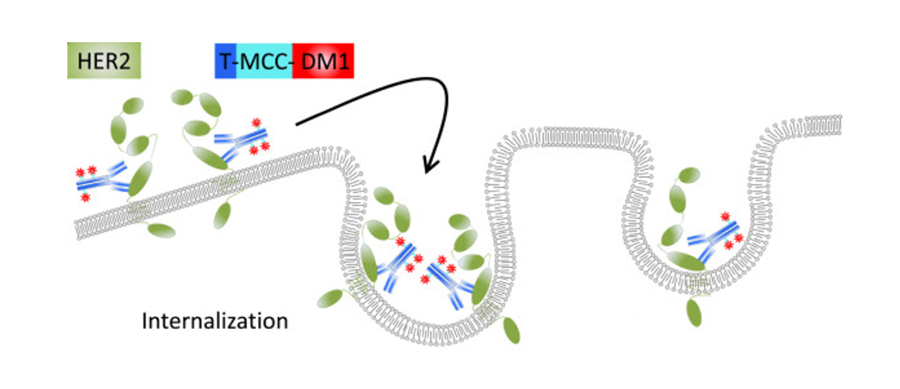

Ado-trastuzumab, llamado también T-DM1, recibió la aprobación inicial de la FDA hace más de seis años para el tratamiento de mujeres con cáncer metastático de seno con HER2. Nonetheless, this remains the largest cohort of patients receiving T-DM1 for advanced HER2-positive breast cancer focusing not only on its efficacy but also on its safety profile, which represents an increasingly relevant aspect in the context of the evolving therapeutic paradigm for this disease subtype. If the patient used any of these previously, then they must have been stopped for at least 7 days prior to study entry.Įligibility last updated 11/8/22. La Administración de Alimentos y Medicamentos (FDA) amplió el uso aprobado del fármaco ado-trastuzumab emtansina para tratar a algunas mujeres con cáncer de seno con HER2. Current use of commonly used drugs for the treatment of peripheral neuropathy, including duloxetine, gabapentinoids (pregabalin and gabapentin), venlafaxine, nortriptyline, or amitriptyline (including use of these medications for things other than neuropathy).If the patient used any of these previously, then they must have been stopped for at least 7 days prior to study entry. T-DM1 may be an efficient and safe alternative for patients who are not suited for systemic chemotherapy in this setting the addition of endocrine therapy does not seem to play a crucial.

Concomitant use of other neurotoxic anticancer agents including cisplatin, carboplatin, oxaliplatin, docetaxel, paclitaxel, vincristine, eribulin, vinorelbine, thalidomide, lenalidomide, bortezomib, or epothilones. Ado-trastuzumab emtansine (T-DM1) is standard of care for patients with advanced HER2+ breast cancer who relapse within 6 months of adjuvant trastuzumab or.Ability to complete questionnaire(s) in English by themselves or with assistance.The patient plans to continue clinical follow-up at the same institution, where the patient entered the study.Patients with previous use of neurotoxic antineoplastic agents (excluding previous use of T-DM1), pre-existing CIPN, or peripheral neuropathy secondary to other causes will be able to be enrolled in the study. A total of 608 patients with metastatic HER2-positive breast cancer and disease progression on T-DM1 (as well as prior trastuzumab) were randomly assigned (2:1) to receive T-DXd or physician’s.The patient may have received one dose of T-DM1, prior to study entry if it has not been longer than 14 days since that dose and that the patient will be able to complete the required baseline questionnaire within 14 days of their first dose of T-DM1. Planning to receive three or more doses T-DM1 for HER2-positive metastatic breast cancer (any line) or for earlier-stage breast cancer.


 0 kommentar(er)
0 kommentar(er)
